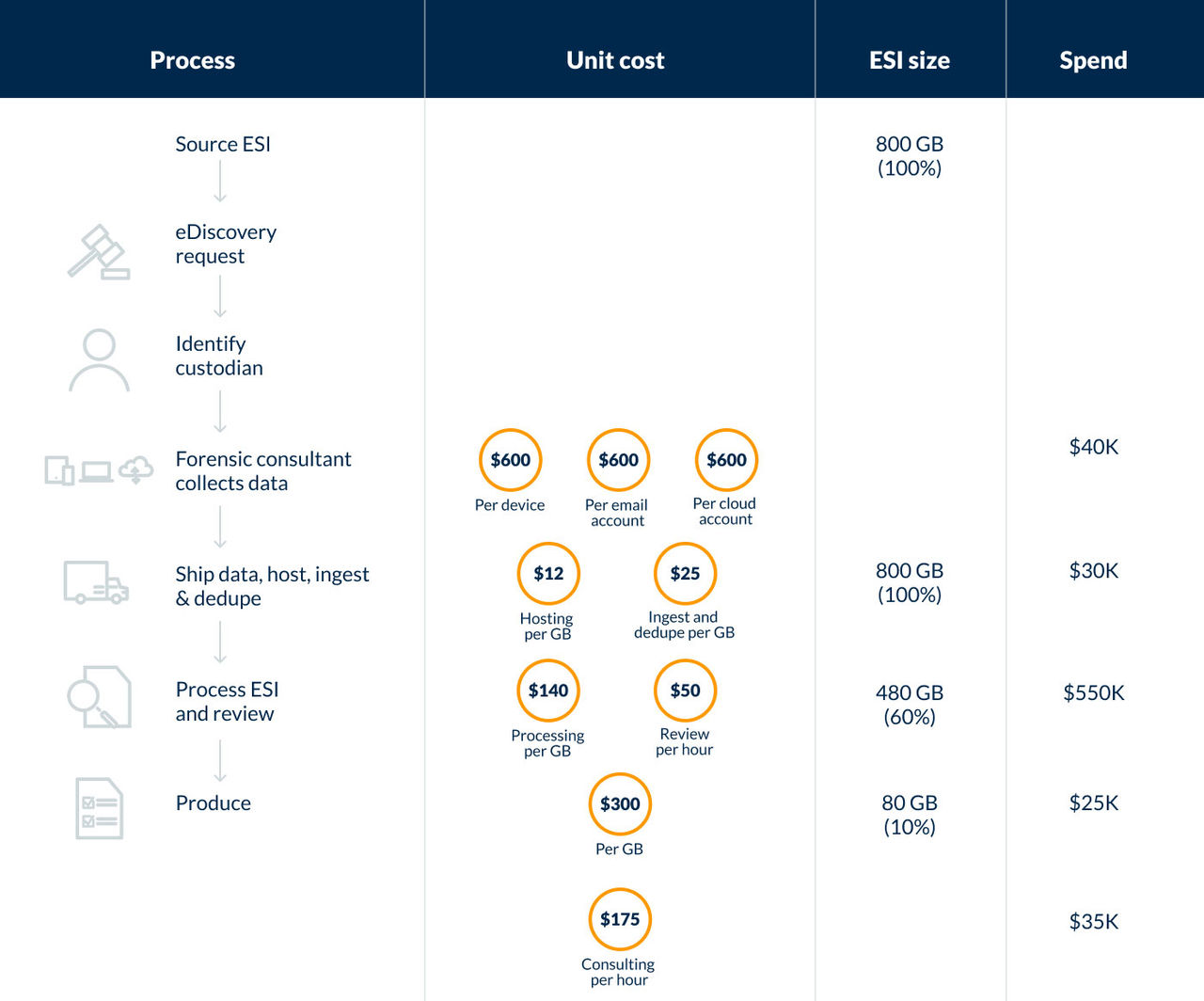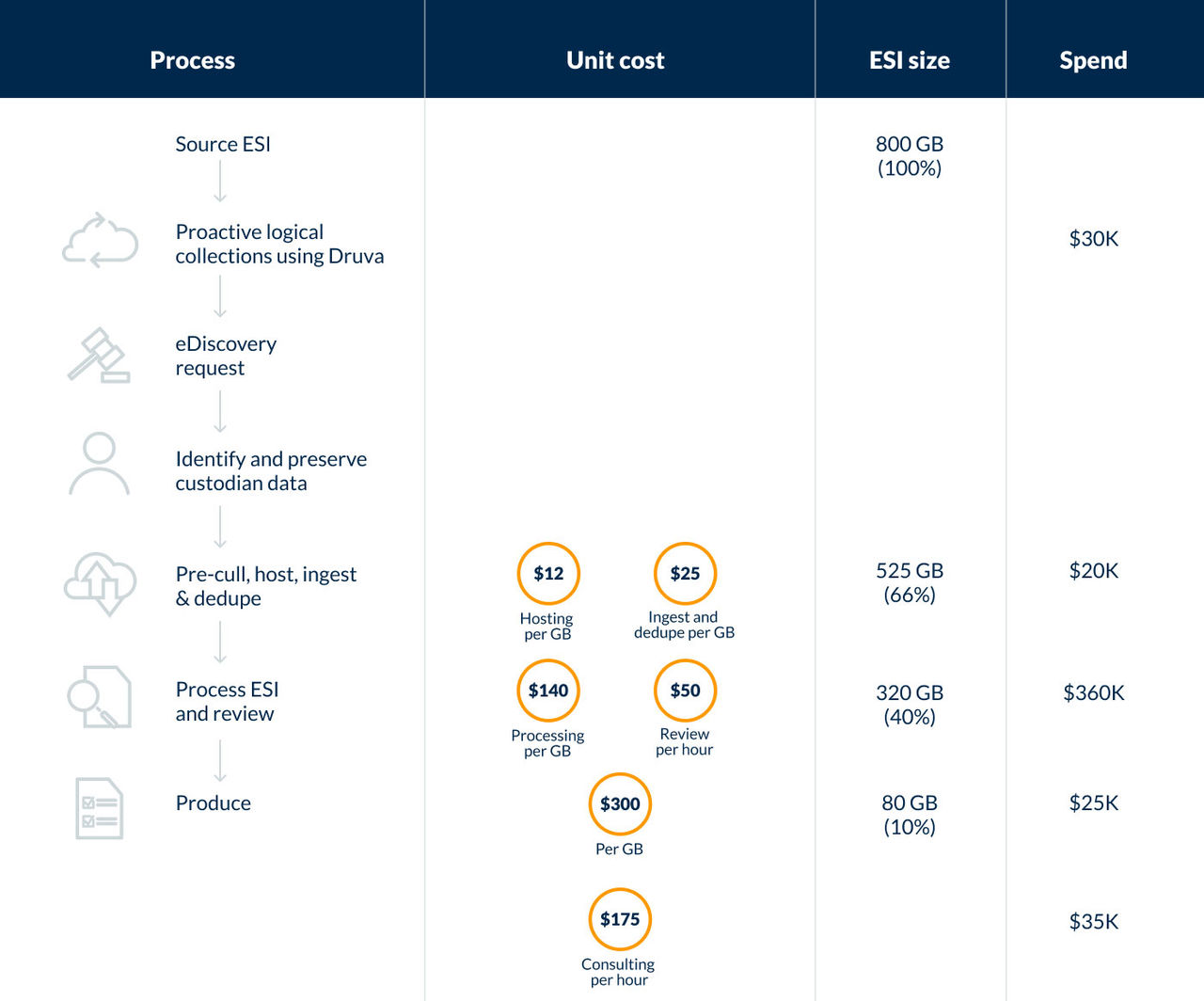For any organization, getting hit by a lawsuit can be a nightmare. As per a survey conducted by Norton Rose Fulbright, organizations today spend $1.5 million per $1 billion of revenue annually on legal disputes — up from $1.2 million in 2018. With an increase in labor/employment and cross-border privacy regulation-related cases, this number is only going to climb.
eDiscovery — the process of producing legally admissible electronically-stored information (ESI) — takes a major chunk of these costs. As per Complex Discovery, corporations spent $11 billion annually on eDiscovery related products and services in 2019. These purchases are expected to increase to $18 Billion by 2023. Additionally, Complex Discovery estimates relative eDiscovery expenditure to be 12% data collection, 19% processing, and 69% review.
As eDiscovery requests continue to expand and producing admissible ESI persists, organizations are seeking third-party assistance to process these requests. However, as more businesses adopt cloud and mobile technology, executing eDiscovery requests often ends up being chaotic, time-consuming, and expensive.
Using a third-party for eDiscovery makes sense if the volume of legal suits your organization faces is low because the cost can be expensive. Per Druva’s estimates, companies can end up paying up to $700,000 in eDiscovery related costs for a lawsuit involving 10 employees each having 80 GB of ESI stored on endpoints, email, and cloud storage drives. It is fairly common for organizations to have multiple lawsuits at any point in time which could take your eDiscovery costs alone into millions of dollars.
Why eDiscovery costs spike
The size of ESI collected — and as it passes through various stages of eDiscovery — plays a key factor in your eDiscovery costs. Most eDiscovery tools and third-party legal firms charge by the volume of data. Due to a lack of proper data collection strategy in place — organizations often end up collecting ESI post facto. As a result, they over-collect data which in turn increases their spending on data review and processing.
To demonstrate this further, let’s take a lawsuit that involves 10 employees each having 80 GB of ESI data stored on endpoints, email, and cloud storage drives of which 8 GB is finally produced. In order to execute eDiscovery requests, businesses today hire a third-party firm to manage their eDiscovery process.
The illustration below demonstrates the different stages of eDiscovery and the costs involved. It also demonstrates how the size of data changes as an organization proceeds with different stages of eDiscovery.


